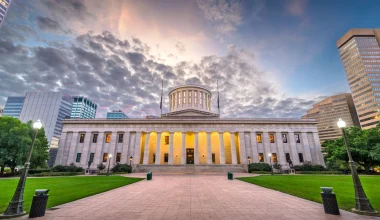Following the Biden Administration’s initiation in 2022 of a marijuana rescheduling effort, the DEA commenced a formal rule-making process in 2024, beginning with a notice and public comment period. After the submission of over 40,000 public comments on the issue of whether to move cannabis from Schedule I to Schedule III, the DEA announced this summer that it would hold a hearing before an administrative law judge. That hearing commences this week and is anticipated to continue into the first quarter of 2025.
If the DEA ultimately concurs with HHS’s proposed rescheduling recommendation, the impacts of this change on the state level will likely be limited. Without further federal reform, state-regulated medical and adult-use (recreational) cannabis regimes will remain in conflict with federal law, which provides state governments with little to no flexibility with respect to legalizing Schedule III substances. The DEA is unlikely to grant licenses to businesses operating in the state-regulated marijuana industry and the FDA is unlikely to approve botanical cannabis for use as a prescription drug. This leaves the state-sanctioned cannabis market in largely the same precarious legal position it is currently in.
By contrast, Washington, D.C. is in a different situation. Rescheduling could have an outsized impact on the legal marijuana market in the nation’s capital. Here’s why.
A budget rider, known as the Harris amendment, was tacked on to the annual D.C. appropriations bill in 2014 by Maryland Republican Rep. Andy Harris. This rider was intended to prevent the D.C. Council from adopting more liberal cannabis policies in the District following its vote to decriminalize cannabis possession and the passage of a cannabis legalization ballot proposal, Initiative 71. Initiative 71 legalized possession of up to two ounces of cannabis flower, gifting of up to one ounce, and home cultivation of up to six plants per person and 12 per household.
Following Congress’ passage of the Harris’ rider, Congresswoman Eleanor Holmes Norton, D.C.’s non-voting member of the House of Representatives, stated that Democratic budget negotiators had limited the language of Harris’ provision to bar funding used to “enact, but not to “enact or carry out.” This omission allowed the DC Attorney General to argue that Initiative 71 was self-enacting, and any further acts taken by the District government were merely carrying out the already enacted law.
Because the initiative did not legalize the sale of cannabis or establish a regulatory system, the District has thus far been unable to regulate sales of adult-use marijuana products because doing so would require enactment of additional legislation, something specifically barred by the Harris amendment.
Over the past decade, the unique legal status of cannabis in D.C. has led to the proliferation of a semi-illicit gray market gifting economy whereby operators sell a nominally valuable product to customers along with a free “gift” of cannabis products, in an attempt to comply with Initiative 71 while circumventing the continued ban on adult-use marijuana sales. These unregulated businesses are not subject to the consumer protection rules found in most state-legal markets. Since the Harris rider keeps the regulation and licensing of the recreational cannabis businesses off the table, the District Council has turned to the expansion of its struggling medical marijuana market as a solution.
As D.C. attempts to gain control over its unregulated cannabis market, the current rescheduling petition making its way through the DEA rulemaking process poses an opportunity for the District to finally enact comprehensive cannabis legalization. If marijuana is moved from Schedule I to Schedule III, the Harris budget amendment would arguably no longer prevent local funds from being used to legalize, tax, and regulate sales of adult-use cannabis as this restriction only applies to Schedule I controlled substances and “any tetrahydrocannabinols derivative.” While “tetrahydrocannabinols derivative” is not defined in the CSA or D.C. law, it is unlikely to be interpreted by a court as inclusive of marijuana generally.
Any move by the D.C. Council to enact legislation regulating the sale of recreational marijuana is more than likely to be met with opposition by some members of Congress, but unless Congress explicitly acts, rescheduling will open a door for D.C. to take back control over its local cannabis policy.
Read Ty’s full article on the impact of rescheduling in Washington, D.C.
Related
Medical Disclaimer:
The information provided in these blog posts is intended for general informational and educational purposes only. It is not a substitute for professional medical advice, diagnosis, or treatment. Always seek the advice of your physician or other qualified healthcare provider with any questions you may have regarding a medical condition. The use of any information provided in these blog posts is solely at your own risk. The authors and the website do not recommend or endorse any specific products, treatments, or procedures mentioned. Reliance on any information in these blog posts is solely at your own discretion.






